From October 16 to November 10, 2023, the School of Education invited Professor Kenneth Spours from the School of Education, University College London, to deliver a series of lectures on the theme of "21st Century Education". More than 600 young teachers, doctoral and master's students from our college participated in the series of lectures.
Professor Kenneth Spours is a tenured professor at the School of Education at University College London, UK, and also serves as the supervisor of the graduate supervisor program. For several years, he has been committed to research in the fields of teacher professional development, higher education policy consultation, vocational education, training and employment relations, and has a wide range of academic influence in Europe and around the world.
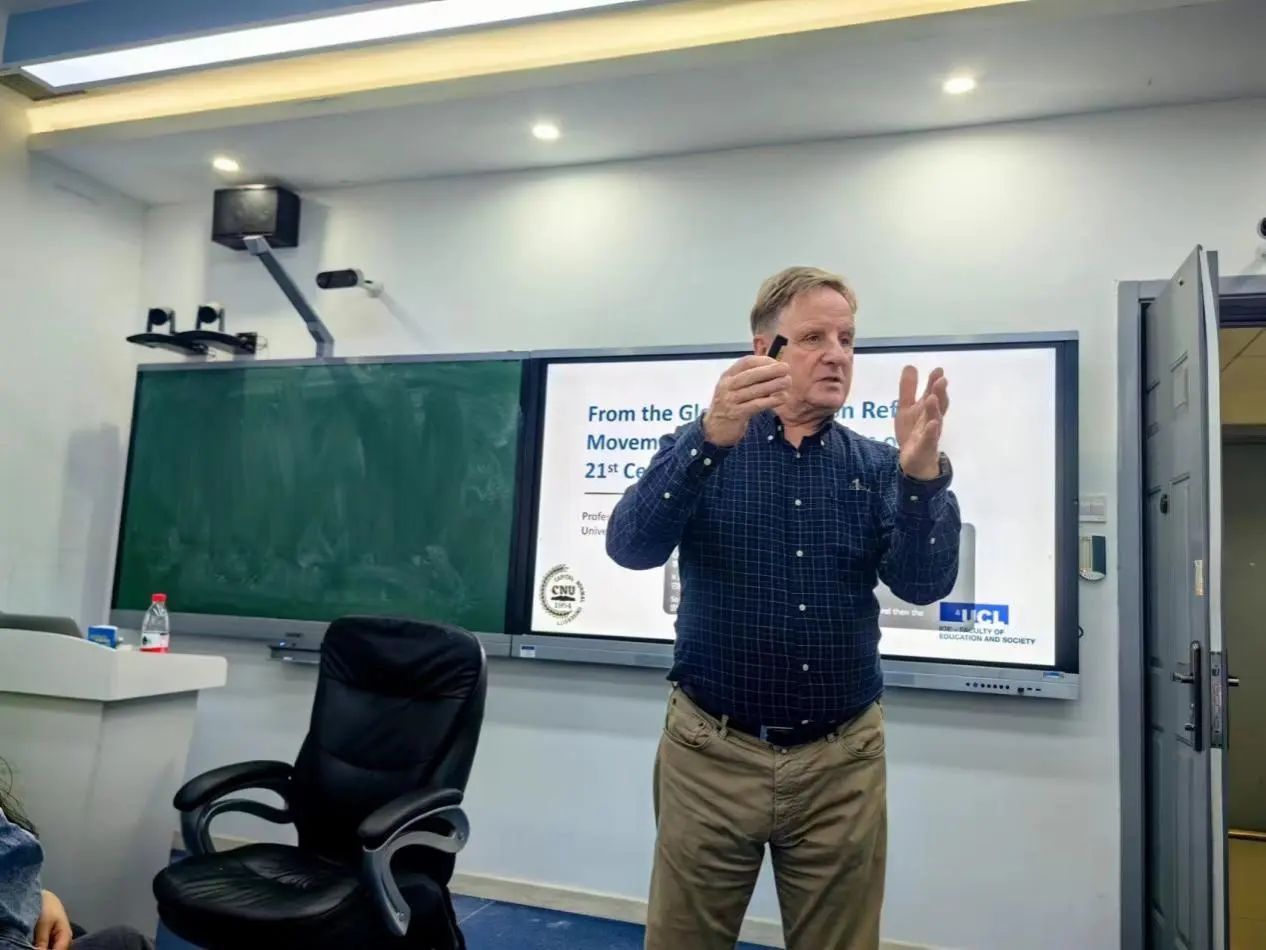
Professor Spours focused on the theme of "21st Century Education" and conducted a weekly series of lectures for graduate students. Through the use of themed courseware, pre-class reading materials and group discussions, he systematically introduced the current situation of compulsory education, vocational education and higher education in the UK under the elite model from the aspects of system characteristics, education stages, curriculum and qualification certification, continuing education and institutional settings, elaborated on the basic overview of the three main global education models (Anglo Saxon model, Pacific region model, and Nordic model), and analyzed the potential of global education reform models to solve education problems in the 21st century. In the lecture, Professor Spours proposed two simplified educational models: the New Freedom Model and the Government Driven Model. Based on these two models, he further proposed the concept of co-construction, encouraging educational institutions to form partnerships with employers and governments to jointly promote the development of education. In addition, he also proposed the idea of establishing a 45 degree learning model, aiming to break the boundaries between disciplines and promote the development of interdisciplinary and comprehensive learning. These concepts provide students with a space for exploration and reflection, encouraging them to actively respond to the challenges and changes of education in the 21st century in the field of education research.
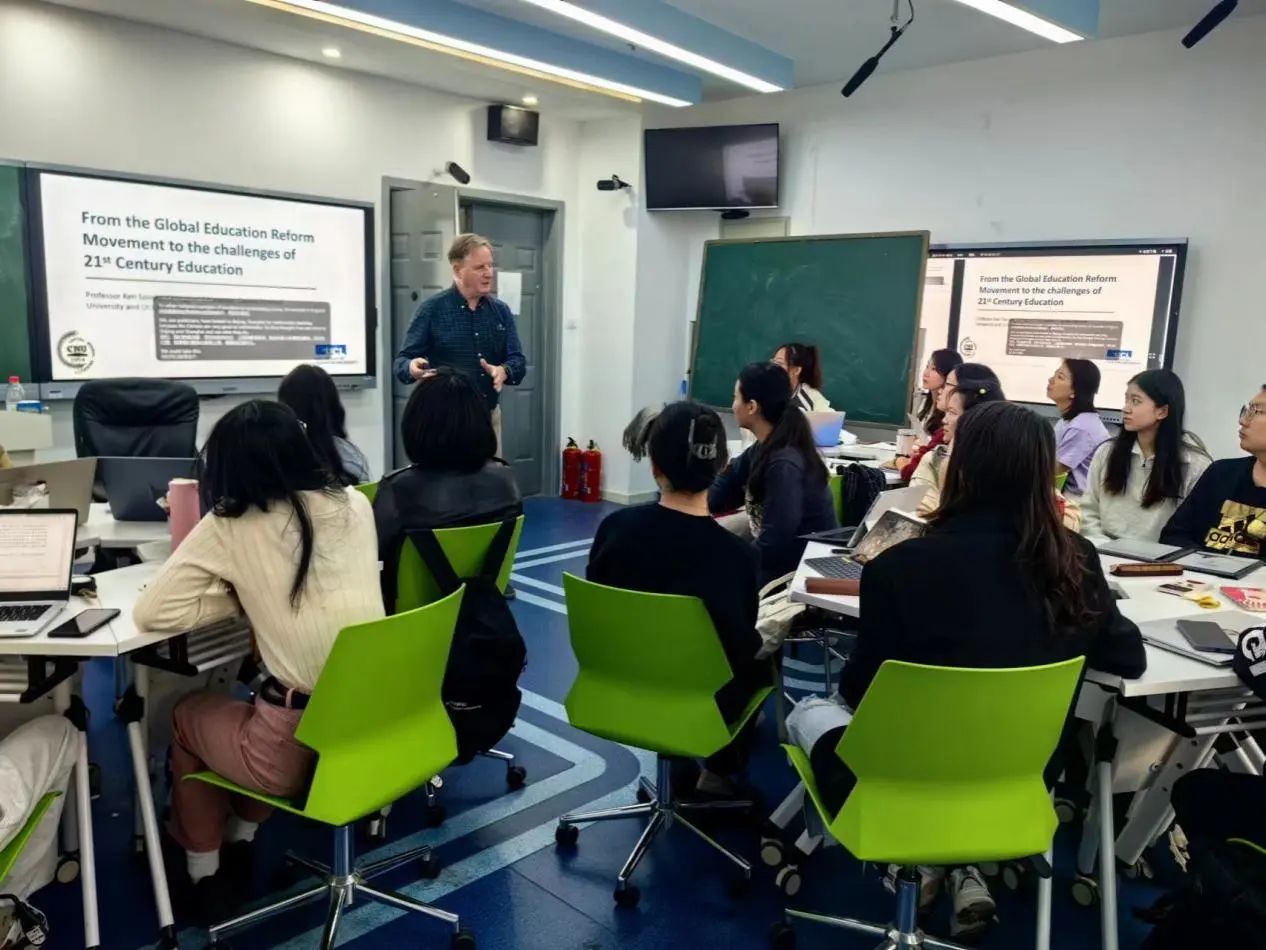
At the same time, Professor Spours also organized the "Young Teachers' English Writing Workshop" in our school, aiming to enhance young teachers' English writing skills and broaden their opportunities to publish papers in the international academic community. The workshop mainly focuses on how to write English papers and how to publish papers in English journals. During the workshop activity, Professor Spours provided a detailed explanation of the framework and standards for writing English papers, covering key aspects such as research objectives, setting research questions, writing literature reviews, selecting data collection methods and ethical standards in research. In addition, he also provided personalized English writing advice and guidance for teachers and students in need, providing new perspectives and strategies for teachers and students to publish papers in international journals.

In order to further broaden the understanding of artificial intelligence and machine learning among teachers and students, the Ministry of Education invited Professor Spours to give a lecture on the afternoon of November 9th with the theme of "Understanding Artificial Intelligence and Machine Learning from Political, Economic, and Ecological Perspectives; Addressing the Transparency Issues at the Core of Machine Learning and Large Language Models (including ChatGPT)". In this lecture, Professor Spours first discussed with everyone the development prospects of artificial intelligence and machine learning under the fourth wave of industrial revolution, and emphasized their important position in technological innovation. He elaborated on the impact of the development and application of new technologies on the socio-economic structure and human way of life, particularly emphasizing the roles of artificial intelligence and machine learning in this process. Secondly, Professor Spours delved into the impact of artificial intelligence and machine learning on political, economic, and social levels. He reminded teachers and students to pay attention to various issues that artificial intelligence technology may cause in social transformation, such as privacy protection, social inequality, and employment opportunities. At the same time, transparency issues were also explored, especially the core transparency issues related to large language models such as ChatGPT. Finally, Professor Spours looked forward to the Fifth Industrial Revolution from the perspective of social ecosystems. He emphasized the social responsibility of artificial intelligence and machine learning, helping teachers and students deeply understand their application in educational organizations, and exploring how educational organizations can actively respond to human crises and build a more just and sustainable social system. The launch of this lecture helped teachers and students better understand the impact of artificial intelligence and machine learning on society from political, economic, and ecological perspectives, and stimulated everyone's enthusiasm for thinking and exploring hot educational issues.
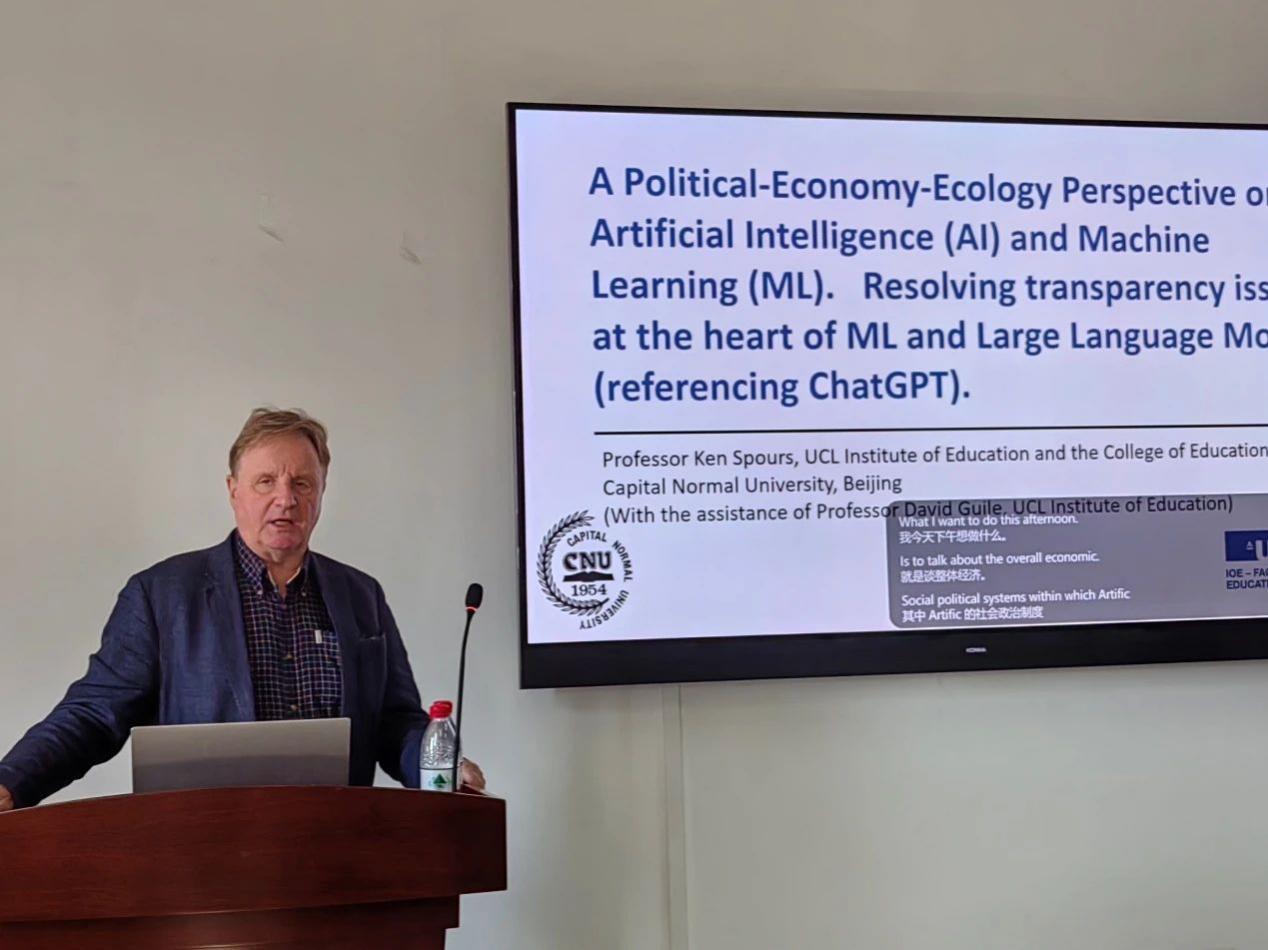
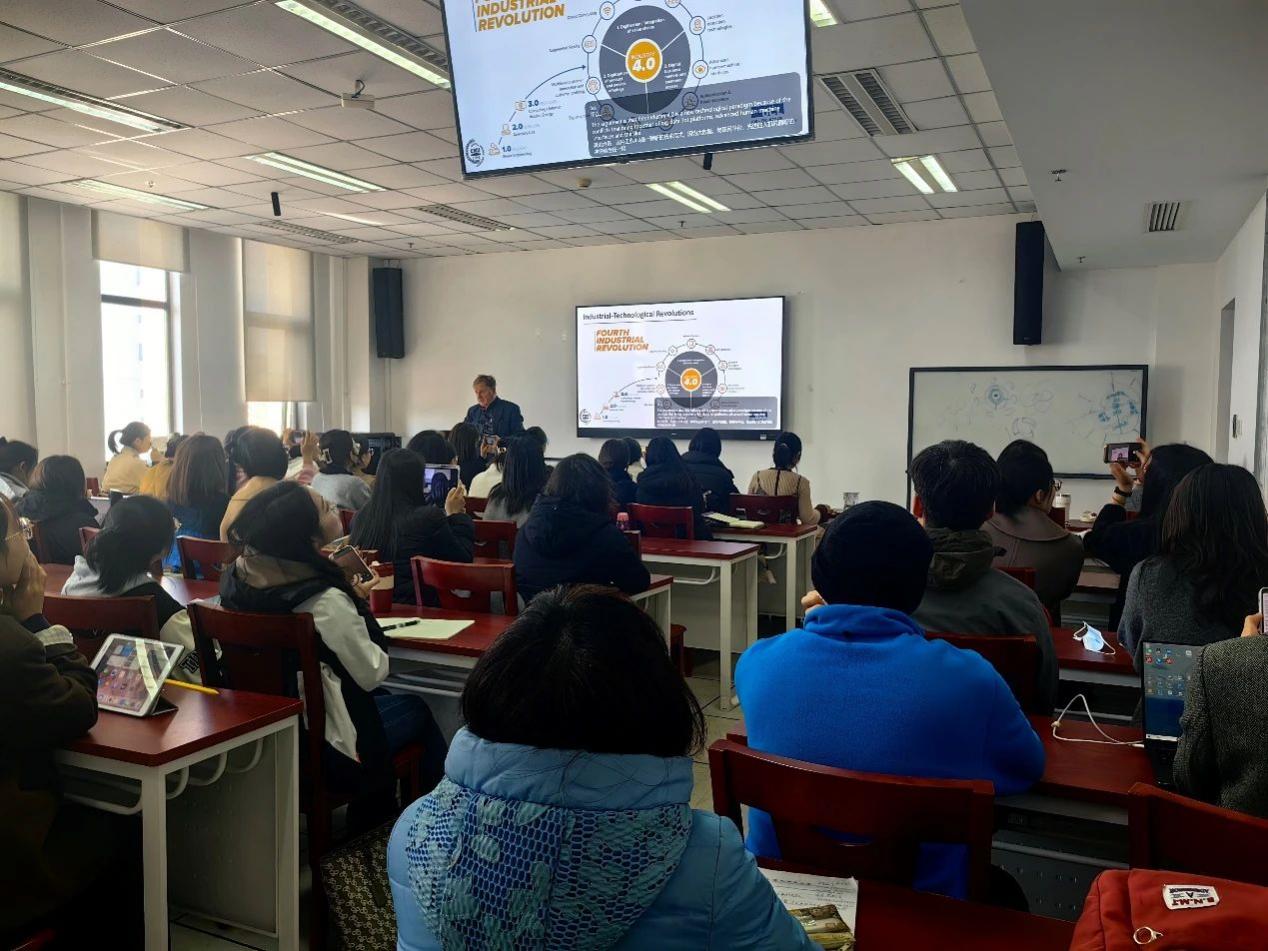
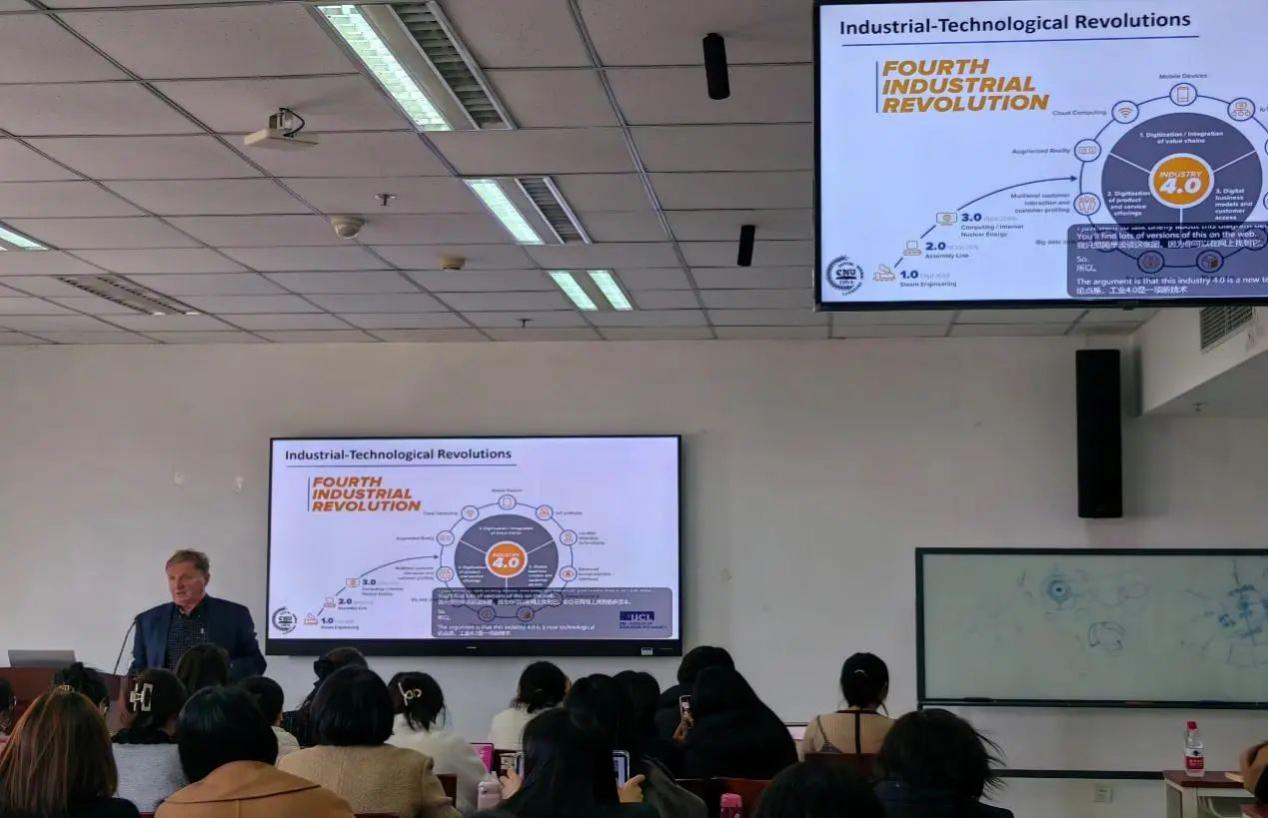
In the series of lecture activities, Professor Spours adopted systematic knowledge teaching, open thinking collision, and targeted Q&A methods to enhance the understanding of British education and current international education hot topics among teachers and students. The lecture not only helps teachers and students understand the development issues of education abroad, but also guides them to deeply reflect on the sustainable development of education in China and the trend of global education development. It has received unanimous praise from teachers and students, providing new ideas and directions for academic research among teachers and students.
